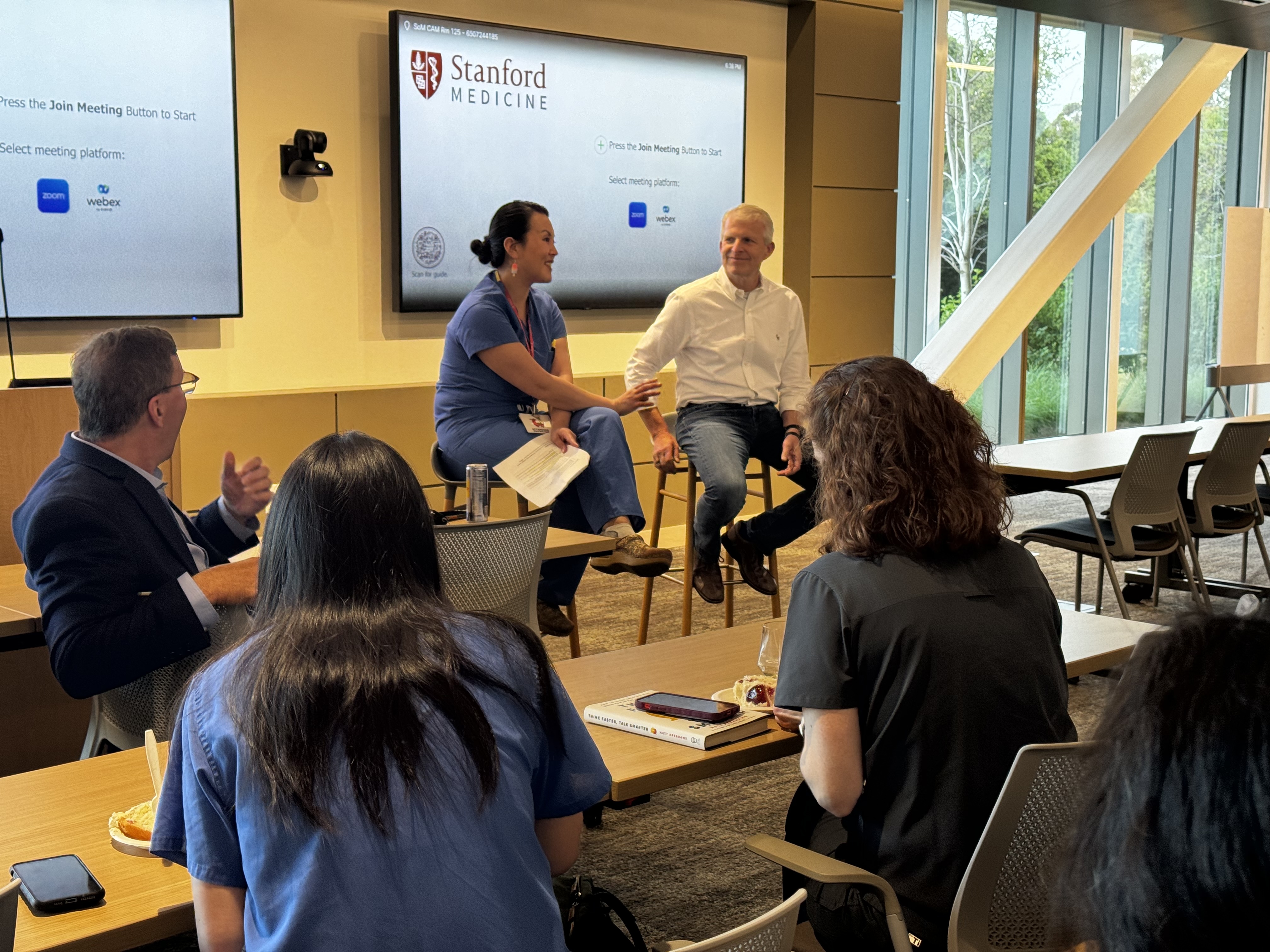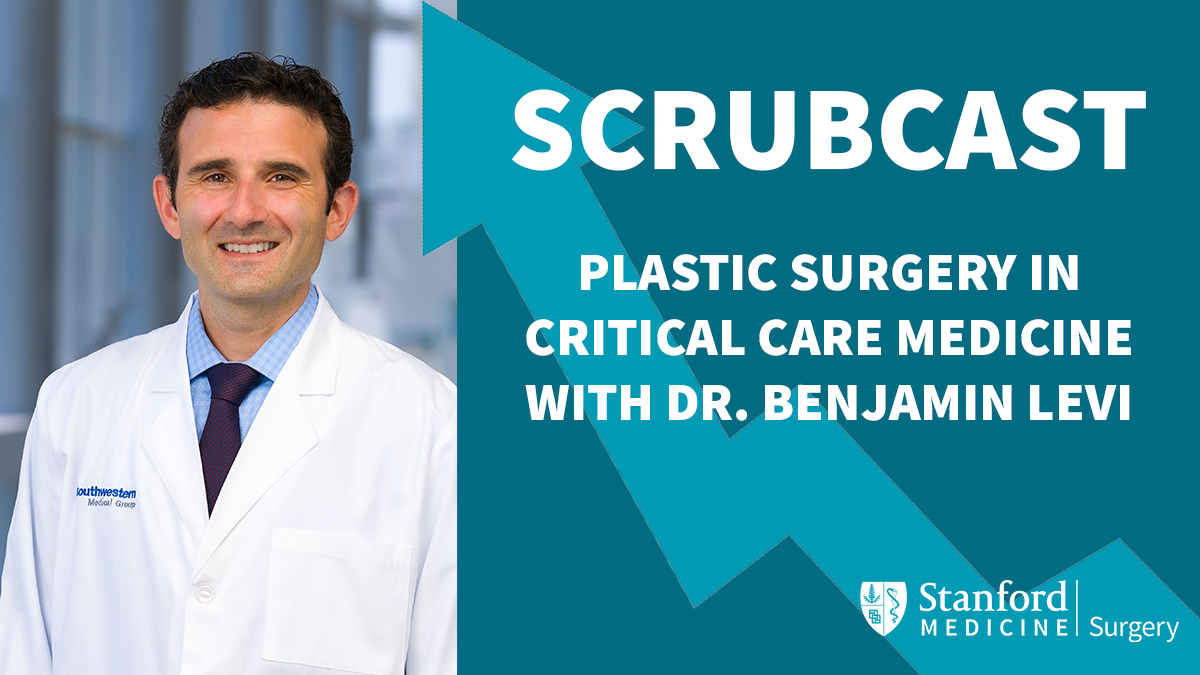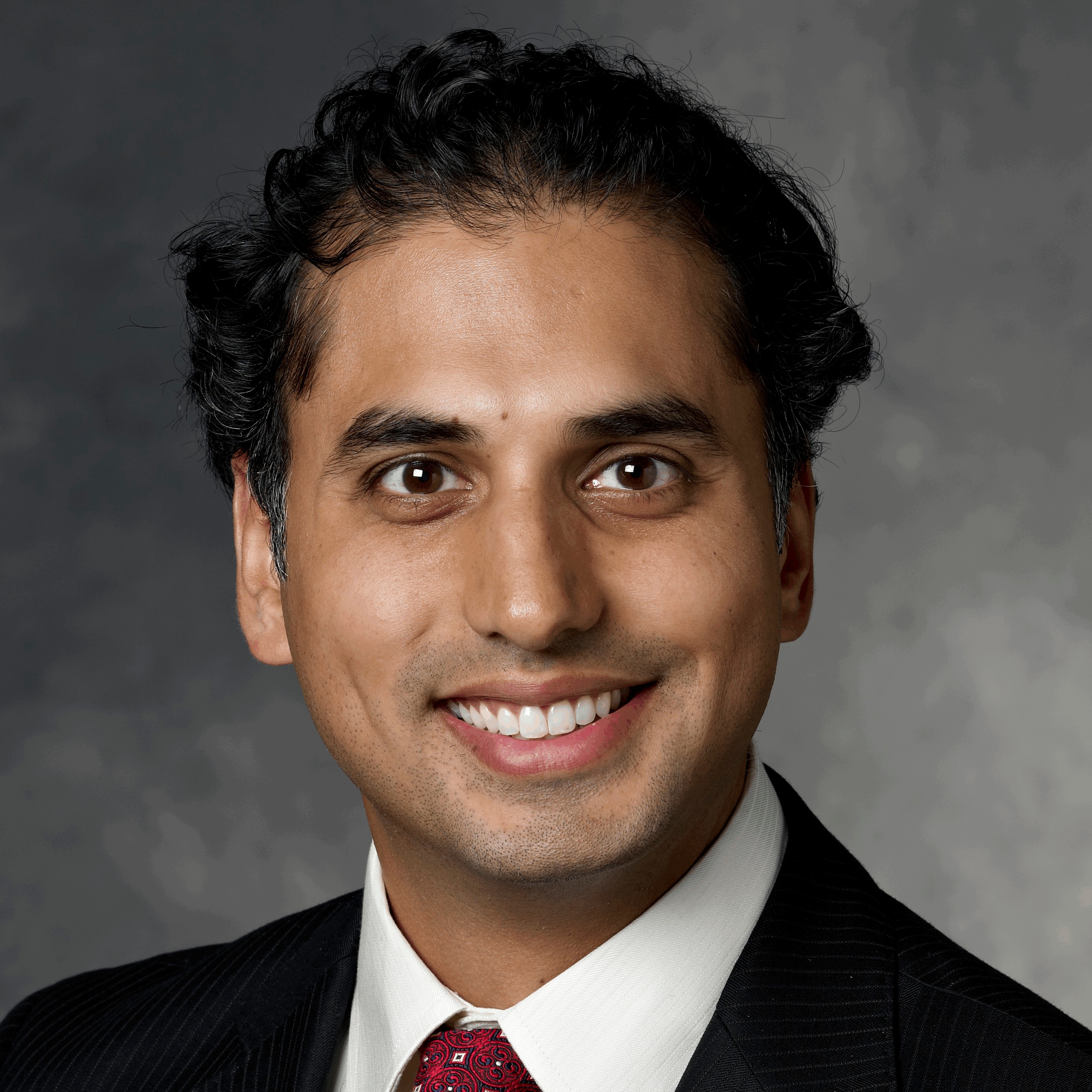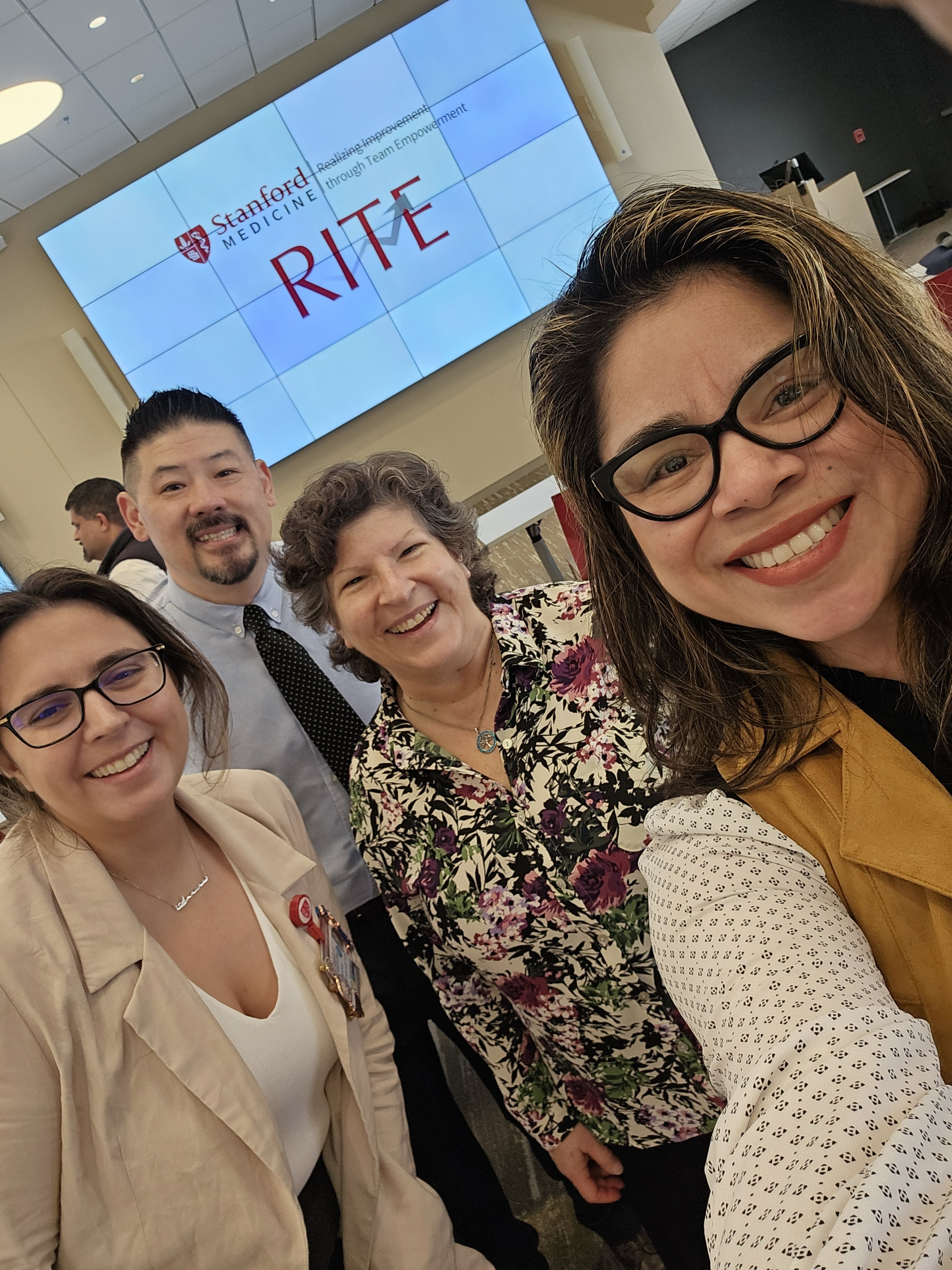Dr. Melcher Accepts Chief of Abdominal Transplantation Position
September 1, 2023
Dr. Marc Melcher has accepted the position as the new Chief of the Division of Abdominal Transplantation.
“I thank Dr. Hawn for this opportunity, and I am thrilled to take on this position,” said Melcher.
Melcher is a Professor of Surgery and performs both adult liver and kidney transplants. His research focuses on methods to enhance organ allocation, preservation, and function. Additionally, Melcher is the current Abdominal Transplant Fellowship Director.
"I plan not only to invest in our current faculty but also to recruit new faculty as needed to develop collaborative clinical programs and research initiatives and to adapt our fellowship training to remain at the forefront of transplant practices," he said. "By fostering partnerships with other specialties and the broader transplant ecosystem at Stanford, we will drive advancements in abdominal transplantation.”
Melcher will be taking over division leadership from Dr. Carlos Esquivel. Esquivel became Division Chief in 1998.
“Under [Dr. Equivel’s] leadership over the past 25 years, Stanford built a world-class abdominal transplant program; taking on some of the most challenging patients and leading in innovation in several areas including pediatric transplantation, tolerance programs, intestinal transplantation, and en bloc multi-organ transplantation to name a few,” wrote Department Chair Dr. Mary Hawn in her announcement.
“We are on an amazing trajectory, and I look forward to what the future holds for Abdominal Transplantation at Stanford.”
Related News
- – Surgery
Drs. Melcher & Hansen Design "Kidney Jacket"
Drs. Marc Melcher and Keith Hansen have been awarded two grants to fund the commercialization of their "kidney jacket:" a $100k Stanford-Coulter Translational Research Grant and a $50k Stanford Spectrum MedTech Grant to help bring the innovation to market.
Dr. Marc Melcher presents his seed grant update: AI to Detect Histopathologic Features Predictive of Transplantable Donor Livers. Sep 26, 2019
Media Contact
Bio
About Stanford Surgery
The Stanford University Department of Surgery is dedicated to inventing the future of surgical care through:
• pioneering cutting-edge research,
• developing the next generation of leaders, and
• healing through incomparable surgical skills and compassion.
To learn more, please visit surgery.stanford.edu
The Latest
- Surgery
Faculty PD Team Hosts First Networking Event
Drs. Pete Lorenz and Stephanie Chao, the vice chair and associate vice chair of professional development at Stanford Surgery, hosted a networking event with special guest Matt Abrahams.
- News Center
Chuck Chan, stem cell researcher who discovered how to regrow cartilage, dies at 48
The Stanford Medicine researcher was known for his groundbreaking work and his generous spirit as a mentor and colleague.
- Surgery
The Role of Plastic Surgery in Critical Care Medicine with Dr. Benjamin Levi
This episode of Scrubcast features Dr. Benjamin Levi, Chief of Burn, Trauma, Acute, and Critical Care Surgery at UT Southwestern and our honored guest at the 2024 Emile F. Holman Lecture.
- Surgery
Dr. Khosla Promoted to Professor
Dr. Rohit Khosla has been promoted to the rank of Clinical Professor in Surgery. The promotion is effective May 1, 2024.
- Global Health
Meet Dr. Derbew Fikadu Berhe, University of Global Health Equity researcher, educator, and pharmacologist - Global Health
Dr. Berhe will be at Stanford April 23-27 for a mixed methods research training and hopes to connect with colleagues in global health research, pharmacology, and noncommunicable diseases. His trip is sponsored by Stanford Surgery's Office of Global Engagement.
- Surgery
Surgery Expands National Doctor Day to a Month-long Celebration
Although National Doctor’s Day officially took place on March 30, Stanford Surgery celebrated department faculty all month-long with a series of events.
- Healthier, Happy Lives Blog
How a Social Media Post Led a Teen to Find a ‘Kidney Buddy’ for Life
Jaxon was diagnosed with nephronophthisis, a genetic disorder of the kidneys. Children who have this disease need a kidney transplant by the time they’re teenagers, as it eventually leads to kidney failure.
- Healthier, Happy Lives Blog
New Liver Gives a Toddler a Renewed Chance at Life
“Ocean was in dire need of a liver transplant,” says Carlos Esquivel, MD, pediatric transplant surgeon. “He was very ill and running out of time to wait for a compatible pediatric donor. We rarely get a pediatric donor. We had an offer for him from an adult donor that was his only chance for survival. We were able to use a small segment of the donated liver to save his life.”
- Surgery
Team Reduces Reimbursement Rejections by A Third
A team comprised of Linda Thomas, Co-Lead Carmen LoCascio as well as Robin Cohen, Amos Lam, Kevin Lee, Ana Mezynski, and Jackie Stahl participated in SHC's RITE (Realizing Improvement through Team Empowerment) Program and successfully reduced reimbursement rejections from 25 to 17%.
- Surgery
Non-Surgical Treatment for Pierre Robin Sequence with Dr. HyeRan Choo
In this episode of Scrubcast, host Rachel Baker interviews Dr. HyeRan Choo, a clinical associate professor in the Division of Plastic and Reconstructive Surgery. Dr. Choo is doing innovative work treating Pierre Robin Sequence—a rare congenital condition—using a non-surgical method.










